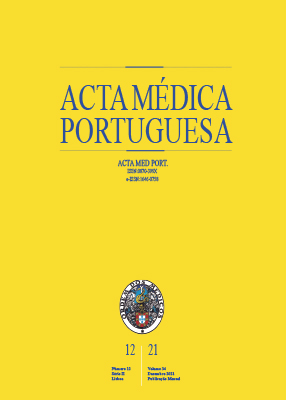The Role of Oxytocin in the Prevention of Postpartum Hemorrhage in Low-Resource Settings
DOI:
https://doi.org/10.20344/amp.14258Keywords:
Developing Countries, Healthcare Disparities, Maternal Health, Oxytocin, Postpartum HemorrhageAbstract
Introduction: Postpartum hemorrhage remains one of the leading causes of maternal death globally. Oxytocin is the uterotonic agent of choice for the prophylaxis of this complication. However, its use in low-resource settings is associated with clinical, political, economic and cultural constraints. The goal of this article is to describe the use of oxytocin for postpartum hemorrhage prophylaxis in low-resource settings.
Material and Methods: A literature review on the topic was carried out, and 24 articles were included.
Results: The information was organized into seven sections: the evaluation of the efficacy of oxytocin compared to other uterotonics, the use of oxytocin in home births, the training of healthcare professionals, the quality of the available oxytocin, the new formulations, the risks associated with the use of uterotonic and the adopted health policies.
Discussion: Despite the progress achieved widespread access to oxytocin for postpartum hemorrhage prophylaxis in low-resource settings is less than desirable. The main difficulties encountered were the shortage of skilled healthcare professionals for oxytocin administration, deficiencies concerning the quality of the drug and the inadequacy of available clinical guidelines.
Conclusion: In order to reduce maternal mortality caused by postpartum hemorrhage in low-resource settings, it is essential to improve the knowledge of healthcare professionals, to implement good practices on the use of uterotonics, to optimize resource management and to overcome cultural barriers that prevent the demand for health services.
Downloads
Downloads
Published
How to Cite
Issue
Section
License
Copyright (c) 2021 Acta Médica Portuguesa

This work is licensed under a Creative Commons Attribution-NonCommercial 4.0 International License.
All the articles published in the AMP are open access and comply with the requirements of funding agencies or academic institutions. The AMP is governed by the terms of the Creative Commons ‘Attribution – Non-Commercial Use - (CC-BY-NC)’ license, regarding the use by third parties.
It is the author’s responsibility to obtain approval for the reproduction of figures, tables, etc. from other publications.
Upon acceptance of an article for publication, the authors will be asked to complete the ICMJE “Copyright Liability and Copyright Sharing Statement “(http://www.actamedicaportuguesa.com/info/AMP-NormasPublicacao.pdf) and the “Declaration of Potential Conflicts of Interest” (http:// www.icmje.org/conflicts-of-interest). An e-mail will be sent to the corresponding author to acknowledge receipt of the manuscript.
After publication, the authors are authorised to make their articles available in repositories of their institutions of origin, as long as they always mention where they were published and according to the Creative Commons license.









